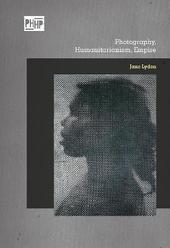
|
Photography, Humanitarianism, Empire
Paperback / softback
Main Details
Description
With their power to create a sense of proximity and empathy, photographs have long been a crucial means of exchanging ideas between people across the globe; this book explores the role of photography in shaping ideas about race and difference from the 1840s to the 1948 Declaration of Human Rights. Focusing on Australian experience in a global context, a rich selection of case studies - drawing on a range of visual genres, from portraiture to ethnographic to scientific photographs - show how photographic encounters between Aboriginals, missionaries, scientists, photographers and writers fuelled international debates about morality, law, politics and human rights.Drawing on new archival research, Photography, Humanitarianism, Empire is essential reading for students and scholars of race, visuality and the histories of empire and human rights.
Author Biography
Jane Lydon is the Wesfarmers Chair of Australian History at the University of Western Australia
ReviewsA significant contribution to the history of humanitarianism, combining valuable descriptions of imagery with a careful analysis of the contexts in which photographs of Indigenous Australians were produced and used. * Johannes Paulmann, Director, Leibniz Institute of European History, Germany * Historically situated yet framed within contemporary debates about human rights, Lydon challenges us to reconsider the photographic archive of colonialism and its legacy. Richly illustrated, and using a diverse range of little analysed source material from the 1840s to the 1950s, Lydon also importantly draws attention to the ethical issues that the research and use of these materials entails. * Gaye Sculthorpe, Curator, Oceania, The British Museum, UK * In a world awash with photographs, a relentless celebrity selfie-feed only occasionally, momentarily interrupted by flashes of pathos, atrocity and injustice, the impact and the limits of the medium and its messages require constant renegotiation and recalibration. We should be grateful for academic work such as this, which is as convincing as it is (in all ways) conscientious. * David Hansen, Australian National University, Australia *
|